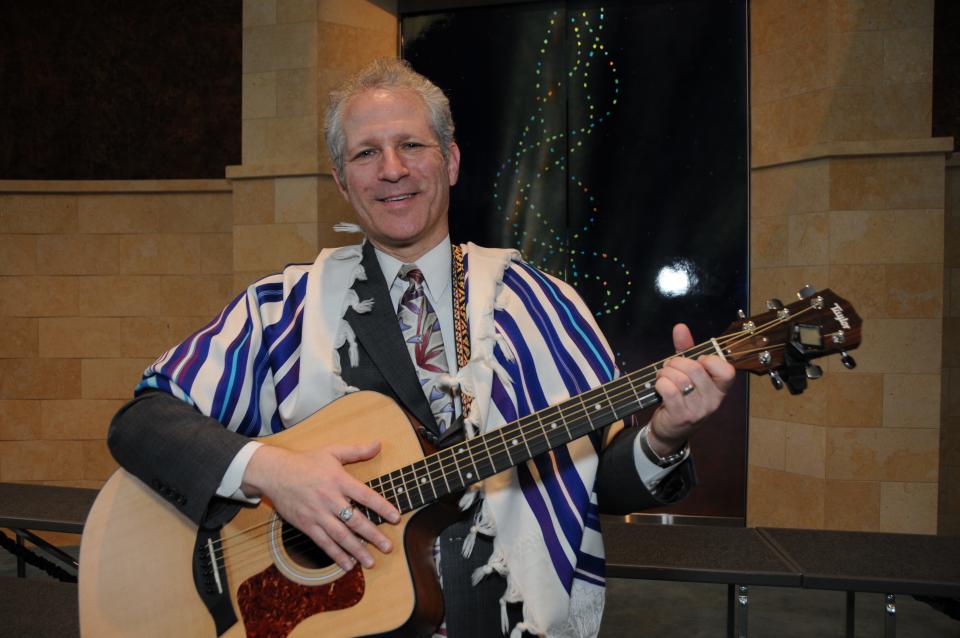Rosh Hashanah, the Jewish New Year celebrates improved and ever-evolving better behavior.
“Evolution can be insanely effective when you leave it alone for a few billion years.” —Andrew Weir
Most Jewish people I know acknowledge the universe is billions of years old and still greet the New Jewish Year of 5784 with open arms, celebrating its creation. Most of us don’t believe the world literally was formed less than 6,000 years ago, and even those who do might consider that the first three days prior to the creation of the sun could have been any number of hours, days, months, years, millennia long (see the Scopes Trial or the play Inherit the Wind).
Rosh Hashana and Yom Kippur: The Jewish holy days explained
Some who argue for Creationism cite the Second Law of Thermodynamics, the assertion that in nature, molecules and larger systems left to their own devices move from greater to lesser order. How can evolution work in such a system where living beings become more adaptable, arguably more orderly?
The scientific answer is that the earth and its living beings thrive in a system that is constantly fed energy by the sun which allows, over billions of years and amid natural selection, those that survive to improve and adapt.
But if the second law of thermodynamics applies to the rest of nature’s closed systems and laboratories, is there an analogy to the moral realm? I’d like to suggest there is.
This insight was inspired by a column written by Rabbi Jan Urbach, Spiritual Arts Director of the Jewish Theological Seminary in New York City.
A Talmudic debate moved a late 19th-century sage known as the Sfat Emet to assert that all of us, all created living beings, are capable of choosing our form— indeed— choosing our ethical template.
God implores us to choose life and not death
This past week, Jews around the world read a verse from Deuteronomy which is the basis of a prevalent theme in Jewish thought: God implores us to choose life and not death. This may seem obvious and, in context, is a continuation of God’s plea that we observe the laws directed toward us so that we will, indeed live and not be punished and die.
But the rabbis are never content to accept just one meaning from an ancient teaching. They choose to find many. There’s a reason so many Jewish people throughout history have found themselves in the medical profession — choosing life is more than a mere slogan. It’s a cultural imperative.
But Rabbi Urbach takes the idea further. She suggests life and death are not absolutes but trajectories. Every time we choose to form ourselves a little differently, to change and improve our habits ever so much, that is a choice toward the life force. Every time we say, “Well, we’re good enough as we are,” we are making the opposite choice — not death per se but a kind of inclination toward stagnation, toward demise.
Hatred of Jewish people is not OK: Biden’s National Strategy to Counter Antisemitism will accelerate Louisville's efforts
A moral analog to the second law of thermodynamics
The moment we say we’re good enough, we are on the trajectory towards disintegration, greater disorder. Not immediately, but little by little. What was easy to maintain ethically becomes harder, the temptations to leave the path become more attractive, the ability to withhold our inappropriate comments more difficult.
Our moral lives require constant watering and tending and nurturing and challenging. They require honest assessment and revision on a regular basis. It’s not because celebrating our moral successes are evil in and of themselves. They should be acknowledged, but the laurels that garland us can never be rested upon for long. Merely maintaining our status quo moral standing requires work — we must continue to submit ourselves to reality checks by honest friends and loved ones, to continually find ways to improve our virtuous habits so that they don’t disintegrate little by little over time.
Natural selection in evolution is brutal and uncompromising. But for the most part it takes place over millions, nay billions of years.
When it comes to our behavior and character, relaxing into a pattern is too easy and its trajectory may not be literal death but a form of stagnation. Not a pretty sight unless you enjoy cavorting in your compost pile.
I wish everyone a sweet, new year, a meaningful year of sustained, improved and ever-evolving better behavior. It’s what the Jewish New Year is all about. Whether you are Jewish or not, whether you observe it or not, the quest is available to all of whose creation, by whatever methods and means, we celebrate this coming Sabbath and New Year.
And unlike our specialized, very highly evolved sapien species, as individuals we don’t have a billion years to play with.

Cantor David Lipp is currently the Spiritual Leader of congregation Adath Jeshurun here in Louisville Kentucky. He also teaches children and adults throughout the city, leads several choirs and often represents the Jewish community at interfaith events. He is a past president of the Cantors Assembly.
This article originally appeared on Louisville Courier Journal: On Rosh Hashanah, the Jewish New Year, Humans must improve and evolve

